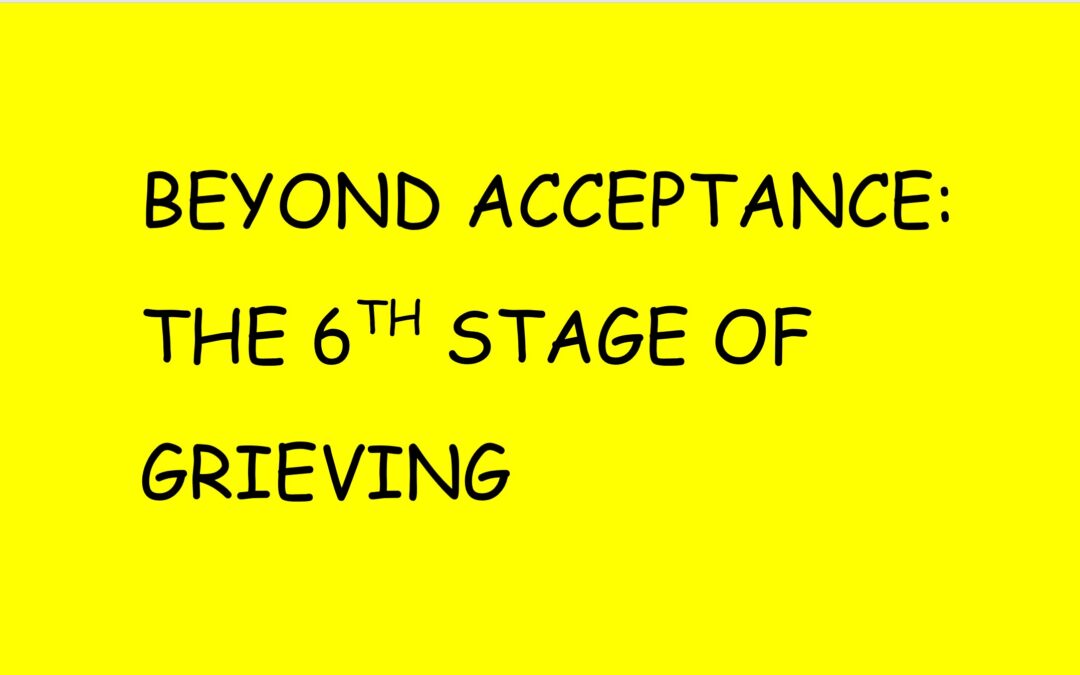


Being Present
I was recently in a seminar on polyvagal theory (Being Polyvagal: The Polyvagal Theory Explained – Windhorse Integrative Mental Health – Windhorse Integrative Mental Health (windhorseimh.org) and trauma when I was struck by how much the science which informs our understanding of psychological disorders has changed over the years.
As I look back to when I first began training in 1978, it is obvious that recent advances in neuro-biology have been extraordinary. In short, we have gone from thinking of emotional problems as originating in the brain to understanding that, in most cases, environmental trauma is the culprit. Indeed trauma damages the brain, specifically the vagal nervous system and hippocampus.
Nonetheless, scientific progress and innovative therapeutic techniques notwithstanding, the basic goal of psychotherapy has remained the same: To help people live more rationally in the present. Becoming Reasonable: Updating our Notions of Mental Health and Counseling. | Pastoral Counseling Syracuse NY (revmichaelheath.com)
Today, while the expressions of ” being present “or “living in the present” are widely used in the media and promoted by mental health professionals, How to Live in the Moment: 35+ Tools to Be More Present (positivepsychology.com) , what it actually means to live in the present is sometimes confusing.
Basically, being present means being able to be attentive to and to be aware of our own immediate experience. When our focus is on the present, we are then able to fully engage with others. While it sounds simple, many people have a hard time being present. With that in mind, there are two obstacles which prevent us from being emotionally present.

BAD IDEAS ABOUT GOOD SEX
It’s no surprise that most people want to have “good sex”. Unfortunately, many people report that they are not having it.
Over the years, I have found that, even among highly educated folks, much is lacking with respect to their understanding of sex and intimacy. 10 Myths About Sex That Many Adults Still Believe | HuffPost Life
Indeed, our culture is saturated with misinformation and myths which have created unrealistic notions and expectations of what good sex is or what is needed to have it. Intimate Communication: Tips for Talking to your Partner about Sex | Pastoral Counseling Syracuse NY (revmichaelheath.com) Indeed, unrealistic expectations about sex are the biggest obstacle to erotic bliss.
Therefore, let’s look at some of the bad ideas about good sex and debunk them with facts and accurate information:

Pastoral Counseling ?
Recently I was asked to do an interview to explain what pastoral counseling is. I was glad to talk to the reporter because, over the years, I have found that many people are confused by the term.
Of course, folks know what the words pastoral and counseling mean. The problem is that, when taken together to designate a therapeutic approach, the meaning isn’t clear.
For example, ministers, rabbis and imam’s provide religious counsel for their followers. Also, non-psychologically based efforts such Christian or Bible-based counseling offer services for a fee.
Perhaps the lack of understanding stems from the fact that, when compared in size with other counseling professions like social work or psychologists, the number of pastoral counselors is relatively small. Nonetheless, I believe that pastoral counseling brings an important perspective to psychotherapy which is particularly relevant in today’s over-stressed world.
Therefore, to really understand what pastoral counseling is, two myths about it must be debunked, i.e. that it is directive/judgmental and that it is only for “religious” clients. Knowing what pastoral counseling is not , we can better appreciate what it is. Specifically, pastoral counseling has two unique and distinguishing characteristics:1) its integrative world view and 2) its training requirements.

The Slap: Why we “lose it”
Actor Will Smith stunned America when he slapped comedian Chris Rock during the Oscars and both the news and social media went wild. Reactions to the incident ran the entire gamut from praise to disgust. Some saw it as a chivalrous act. Others viewed it as a disgusting example of toxic masculinity. Still others felt is was evidence of mental condition. CNN+ | Interview Club | Interview – Why the Oscars Altercation Between Will Smith and Chris Rock Was Such a Trigger
As a therapist I help people learn to control their dysfunctional impulses, It would be helpful to learn from this unfortunate incident and clear up some fundamental misunderstandings about anger. This event can be an opportunity to shed light on the serious but misunderstood societal problem of poor impulse control.
With respect to Will Smith, there are no ifs, ands or buts about it. What he did was wrong and unacceptable on so many levels. In addition, the audience’s calm reaction to it all demonstrates that the problem is much greater than the act of an individual. The whole situation is a glaring and a sad commentary about how callous and insensitive our culture has become to aggressive behavior.
To be clear, my concern, here, is neither to judge nor defend the man but to explain the psychology of impulsive behavior. Indeed, it must be acknowledged that. under the right circumstances, any one of us is capable of a similar reaction. Rather than seeing this as Will Smith’s problem, it is more helpful to view it as a human problem. That is, I want to explain how impulse control issues are rooted in the fundamental structure of our brain. Here are a couple of basic facts which debunk some common myths about anger:

On Feeling Overwhelmed
Given the Ukranian situation, skyrocketing gas prices and COVID, many folks are feeling overwhelmed. If you are one of those folks, it is important to understand that there is nothing is wrong with you for feeling over-stressed.
Of course, feeling over-stressed is nothing new. Indeed, human beings have always had emotional limits. Fortunately, there are many resources available online to help you cope.
To help you sort through them all, here is a summary of what you need to know about feeling overwhelmed and what to do about it:

On Leisure & Mental Health
I try to practice what I preach. And so, as I am currently on vacation, today’s segment is on the importance of leisure for mental health. Indeed, leisure activity does not command the respect that it deserves.
Unfortunately, for too many people, leisure’s health benefits are neither appreciated nor understood. Too many think of vacationing time as an unnecessary luxury or, worse, as wasting time. Think leisure is a waste? That may not bode well for your mental health — ScienceDaily
Today I want to debunk some of the myths concerning leisure and explain why leisure activity, is so essential for brain health and emotional well-being.

On Romantic Love
Valentine’s Day is a celebration of love and romance. Unfortunately, many of the popular beliefs confuse romantic love with true and enduring love.
Typically, romantic notions of true love mistake the magical feeling of infatuation with sustainable love. This conflation comes from classic literature’s portrayal of idealized courtly love. You know, the intoxicating experience of star-crossed lovers such as Romeo and Juliet. Sadly, these stories distort our understanding of what real love is. Worse, they have created unrealistic expectations for those who marry.
Today we are going to debunk at some common myths about love and, instead, provide some helpful suggestions to keep love alive.

Vulnerability and Romance
With Valentiane’s Day fast approaching , people’s minds turn to love and romance. As marriage counselor, I am struck by number of relationships which suffer from a romantic deficit. Ironically, despite modern culture’s emphasis on sex, physical intimacy is a serious problem for many couples. While there are many how-to books and blogs created to help folks increase romance5 Ways to Rekindle Romance in Your Marriage and spice-up a flagging sex-life A Valentine’s Day Primer for Couples who want more Romance in their Marriage . | Pastoral Counseling Syracuse NY (revmichaelheath.com) , an important but much overlooked area of concern is a couple’s ability to be vulnerable with one another.
Vulnerability is a physical or emotional state of being exposed. Communicating your vulnerability means to talk about and admit your fears, weaknesses and confusion. Intimacy means to know the other person deeply. One can’t really know the other person without knowing their vulnerabilities. Thus, communicating one’s vulnerability is an essential part of an intimate relationship. In order for a person to expose their vulnerable issues requires that both persons feel safe from attack and trust that each is being honest about their feelings. Letting your partner know when you are feeling weak or scared or confused, signals them that you are not threatening and that you’re being honest.
Today, let’s look at: 1) Some of the reasons why people have trouble being vulnerable with one another and 2) Steps that you can take to make sharing anxious feelings easier.

Grieving’s 6th Step
I’ve noticed that, as we start the new year in the midst of COVID, many folks are struggling with loss and grieving. For some, the loss involves the death of family members or loved ones. For others, it has meant the loss of financial security. And, for others, COVID has meant the frustrations encountered in the loss of normalcy.
For many, the words grief and grieving are synonymous with the name Kubler-Ross and the five stages of grief. Five Stages Of Grief – Understanding the Kubler-Ross Model (psycom.net) What you might not be aware of are the important developments in grief research which have taken place over the past 40 years since Kluber-Ross’s publication. This research has significantly advanced our understanding of the grieving process and revealed that there is yet another stage of the recovery process.
One important discovery explains how the grieving process ends. Rather than finishing with the 5th stage of acceptance, research has shown that folks who have reported successfully recovering from serious loss have reported finding a new purpose in their life which has given rise to hope and joy about the future.
